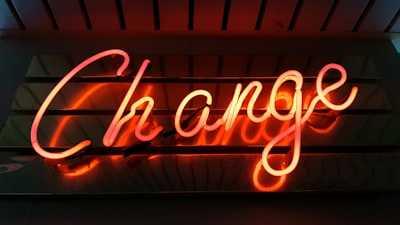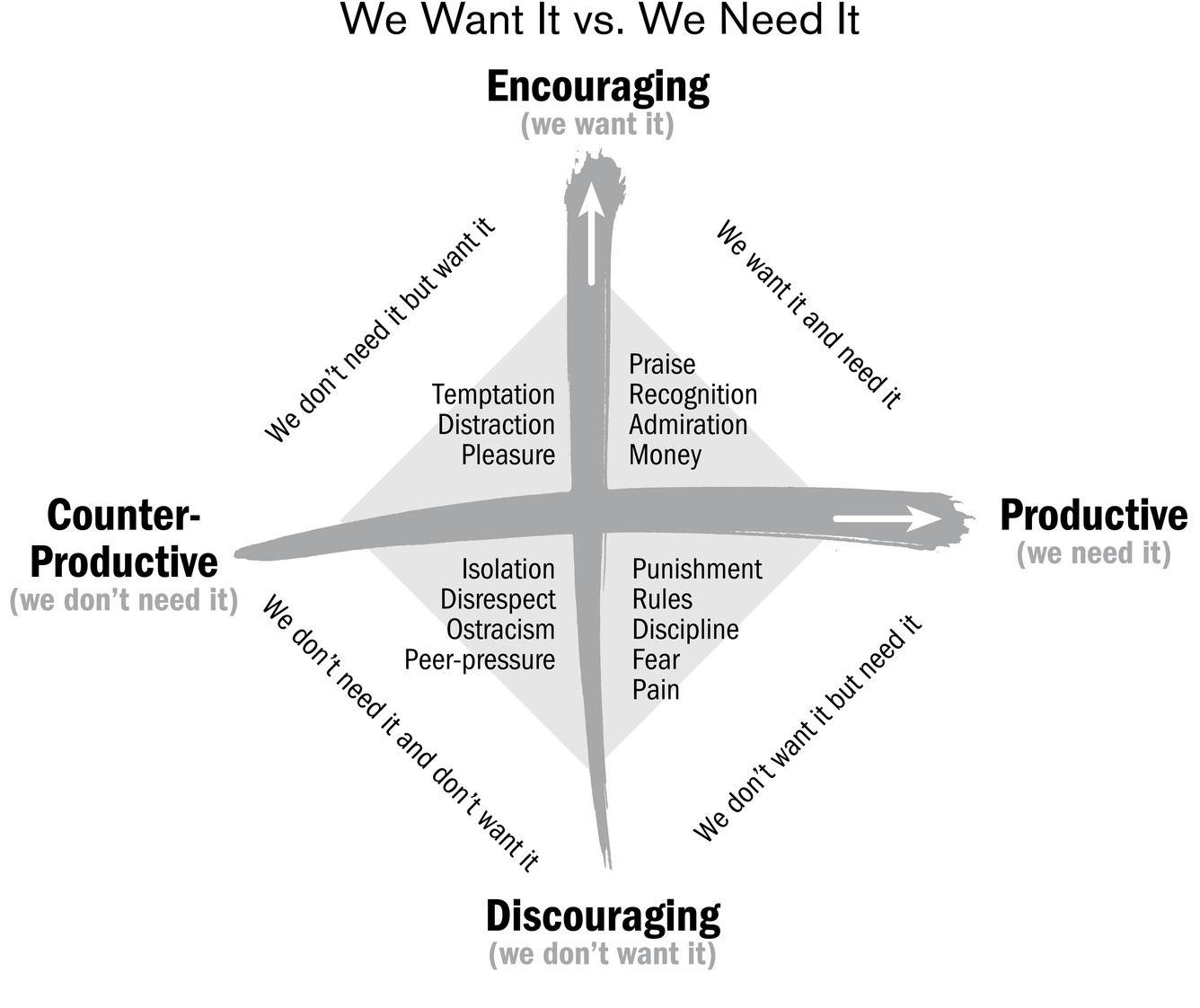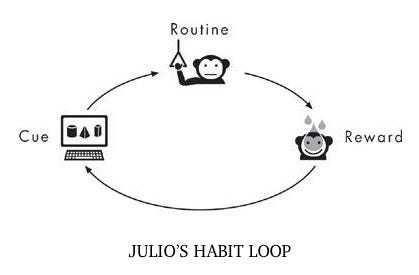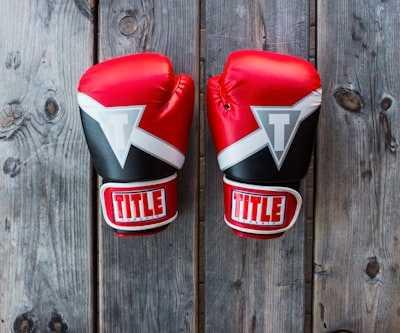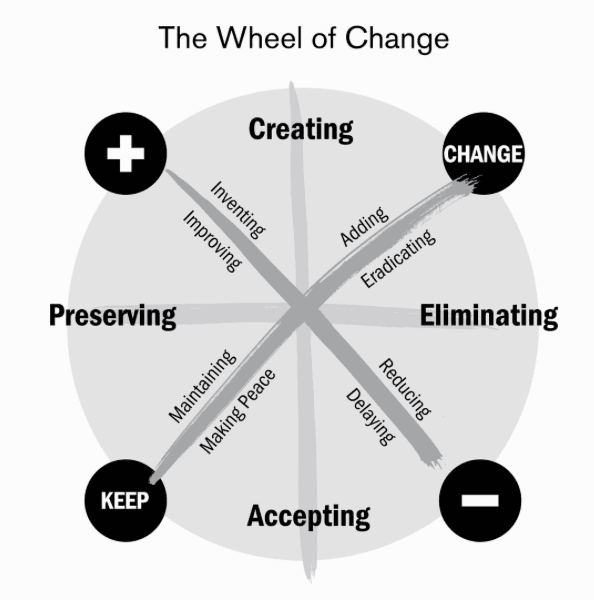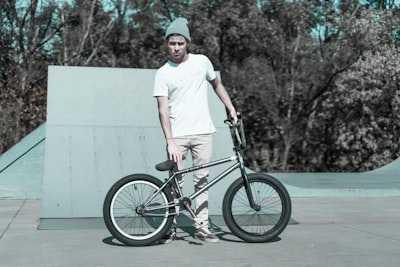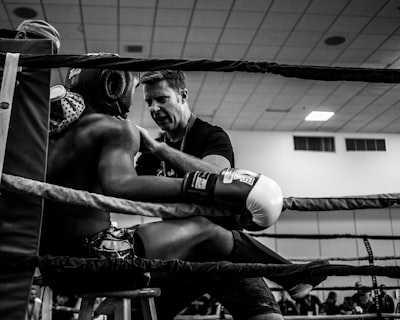Explore the World's Best Ideas
Join today and uncover 100+ curated journeys from 50+ topics. Unlock access to our mobile app with extensive features.
Triggers
- A trigger is any stimulus that reshapes our thoughts and actions. In every waking hour we are being triggered by people, events and circumstances that have the potential to change us.
Now, how do we make triggers work for us?
Because our environmental factors are so often outside of our control, we may think there is not much we can do about them, but fate is the hand of cards we've been dealt and Choice is how we play the hand.
794
5.87K reads
Regret and objectives
"Our phone chrips, and we plance at the glowing screen instead of looking into the eyes of the person we love."
We feel regret's sharp sting when we reflect on the opportunities squandered, the choices deferred, the efforts not made, the talants never developed in our lives. Usually when its too late to do much about it.
If we do our job properly two things will happen:
- I would move closer to becoming the person I want to be.
- There would be less regret.
775
4.07K reads
1. The truths of change
We face three problems in introducing change into our lives:
- We can't admit that we need change: we create elavorate excuses that deny our need for change.
- We do not appreciate inertia's power over us: given the choice, we prefer to do nothing.It takes extraordinary effort to stop doing something in our comfort zone.
- We don't know how to execute change: there's a difference between motivation, understanding and ability. This book seeks to change this.
766
3.54K reads
We don't like change
- Some people say they want to change, but they don't really mean it.
- Even when altering our behavior represents all reward and no risk and clinging to the status quo can costs us our careers and relationships, we still resist change.
- Smoking should be a relatively simple challenge, it's a self contained behavior. Imagine how much harder it is when you let other people into the process, people whose actions are unpredictable, beyond your control and their responses can affect your success.
727
2.74K reads
Belief triggers
- If I understand, i will do: some people read the book and say: "it's common sense. I didn't read anything that I don't already know". True, but I bet that you read plenty here that you don't already do. There is a difference between understanding and doing.
- I have willpower and won't pive in to temptation: we deify willpower and self control; people who achieve through willpower are "strong" and "heroic". People who need help or structure are weak.
744
2.67K reads
Time and will
- Today it's a special day: tomorrow is back to normal, we'll be disciplined then.
- At least I'm better than: it lowers the bar on our motivation and discipline.
- I shouldn't need help and structure: our culture have contempt por simplicity and structure.
- I wont get tired: the day before, when we plan to work long hours and finish our assignment, we are not exausted.
- I have all the time in the world: we understimate the time it takes to get anything done. This triggers procastination.
765
2.5K reads
Dealing with change
- Noting unexpected will occur: we plan for a perfect world whitout distractions.
- My change will be permanent and I will never have to worry again: it's the difference between getting in shape and staying in shape. We have to keep going to the gym; forever.
- Eliminating old problems will not bring new ones: the old problem of becoming CEO has been replaced by the problems of being CEO.
- My efforts will be rewarded: getting better is it's own reward.
749
1.86K reads
Stubbornness
- An epiphany will suddently change my life: this type of change rarely lasts.
- No one is paying attention to me: our slow and steady improvement may not be obvious to others.
- If i change I am "unauthentic": thats a misguided belief that how we are today represents how we have always being and how we really are. We have changed before and we can change again for the better.
- I have wisdom to change my own behavior: we thend to credit our success to ourselves and blame the situation for our losses.
728
1.57K reads
3. The environment
- Our environment is a nonstop triggering mechanism whose impoct on our behavior is too significant to be ingored.
- Some environments are designed to lure us into acting against our interest.
- It's not all bad. Our environment can be the angel on our shoulder, making us a better person.
- We should learn that one tweak to the environment can change everything.
726
1.5K reads
Environmental Examples
- Our behavior can be an aberration triggered by a restaurant where we believe that paying entitles us to royal treatment.
- People talk more softly with a soft spoken person and more quickly with a fast talker.
- Being with certain people affects our mood, like old high school classmates or enduring our weekly call with an aging parent.
- No matter how manny people talk about the weather, they're usually oblivious about it's influence on their moods.
717
1.33K reads
The case of sleep
We understand how much sleep we need, so why don't we do what we know it's good for us?
We put off going to bed at the intended time because we preffer to remain in our current environment playing videogames or warching tv, rather than move to a calm and boring place like the bedroom.
Getting a good night of sleep it's not something we deserve but rather something we must earn by developing better habits. We need to turn off the cellphone and turn in for the night.
719
1.23K reads
3.Identifying our triggers
- A feedback loop compromises four stages: evidence, relevance, consecuence and action.
- They can be direct or indirect: direct triggers have no intermediate steps between the event and your response while indirect ones takea more.
- They can be internal or external: external ones are the environment and internal are our feelings or ideas
- They can be conscious or unconscious: your unconscious triggers shape your behavior beyond your awareness.
- They can be anticipated or unexpected: we see anticipated triggers a mile away.
723
1.11K reads
Want vs Need
They can be encouraging or discouraging
Encouraging push us to maintain or expand what we are doing while the discouraging does the opposite.
They can be Productive or Counteproductive
This is the most important distinction. Productive triggers push us towar becoming the person we want to be. Counterproductive triggers pull us away.
This expresses the timeless question between what we want and what we need. We want short therm gratification while we need long therm benefit.
740
1.09K reads
Exercise to identify your triggers
- Pick a goal you're pursuing.
- List the people or situations that influence the quailty of your performance.
- Are they encouraging or discoucaging? Productive or counterproductive?
If you're falling short on your goal, this simple excercise will tell you why. You're getting too much of what you want, not enough of what you need.
732
1.03K reads
6. How triggers work
- The sequence known as a habit loop are described by three terms: cue, routine and reward.
- The golden rule of habit change design by Duhigg is to keep the cue and reward ande change the routine.
- A modified, more complete way to view this is: trigger -> impulse -> awareness -> choice -> behavior.
729
970 reads
Our closest relationships
- Our closest relationships often become trigger festivals with consecuences that we rarely see in any other part of our lives; the fuming and shouting, the fights and slammed doors, the angry departures and refusals to talk to each other for months, years or decades.
- We feel we can say or do anything with these people, they'll forgive us; we don't have to edit ourselves.
714
855 reads
Superior planner, inferior doer
- Inside each of us are two separate personas: the planner and the doer.
- As a leader, you will assume the follower in you will obey each order precisely as you have articulated it.
- You assume your follower self will not be presented with any reasons to fail during the day.
- Nobody plans to fail, but when has your day ever worked out note for note as you planned it?
- You have to consider that as the day goes on, your energy level diminishes and your motivation and self discipline will flag.
726
877 reads
Communication
- What if the planner in each of us could size up the situation at any point during the day and adopt the appropiate management style for the doer in us?
- It's not just environmental intrusions and unpredicted events that upset our plans; it's also our willful discounting of past experience.
- The planner who intends to make a deadline is also the myopic doer who forgets that he has never made a deadline in his life.
- What punches us in the face is our environment.
722
1.03K reads
7. Forecasting the environment
Forecasting is what we must do after acknowledging the environment's power over us. It comprises three interconnected stages: anticipation, avoidance and adjustment.
712
909 reads
Anticipation
- When our performance has clear and immediate consecuences, we rise to the occasion, we create our environment; we don't let it recreate us.
- The problem is that the mayority of our day consists of minor moments, whet we're not thinking about our behavior.
- This seemingly benign environments, ironically, are when we need to be most vigilant.
- When we are not anticipating the environment, anything can happen.
719
706 reads
Avoidance
- Half the leaders I have meet don't need to learn what to do; they need to learn what to stop.
- People award themselves for triumphing over temptation; avoidance doesn't feel like an achivement.
- Quite often our smartest response to an environment is avoiding it.
- We rarely thiumph over an environment that is enjoyable.
- Temptation shows up in any enjoyable environment, urging us to relax , try a little of that, stay a little longer.
- The not so good news is that it's hard to stay alert as we move.
727
697 reads
When to avoid, when do adjust
- To avoid undesirable behavior, avoid the environments where it is most likely to occur.
- If you don't want to be lured into a tantrum by a person who gets on your nerves, avoid him.
- If you don't want to be indulge into late night snacking, don't wander into the kitchen looking for leftovers in the fridge.
- If we've given up drinking, we don't hang out at a bar.
- We should adjust only after we anticipate our environment's impact and eliminate avoidance as an option.
721
655 reads
The wheel of change
- We are geniuses at coming up with reasons to avoid change, we make excuses, we rationalize.
- When we bluntly challenge ourselves to figure out what we can change and what we can't, what to loose and what to keep, we often surprise ourselves with the bold simlpicity of our answers.
723
752 reads
Creating
- Creating is the glamorous poster child of behavioral change.
- When we imagine ourselves behaving better, we think of it as an exciting process of self invention.
- When we're dissatisfied, we may go to the other extreme, falling for any and every idea, never pursuing one idea long enough that it takes root and actually shapes a recognizably new us. That's chasing, not creating.
713
650 reads
Preserving
- Preserving sound passive and mundane, but it's a real choice.
- Successful people have a lot to preserve, but they also then to have the urge of constant improvement; to fight the status quo and not maintain it.
- The most thankless decision we can make is the one that prevents something bad from happening, because we can never prove that we prevented something even worse.
- Preserving is the same; we rarely get credit for not messing up a good thing.
- Ask yourself: what in my life is worth keeping?
715
556 reads
Eliminating and accepting
- Eliminating is our most liberating, therapeutic action, but we make it reluctantly; we always come out with excuses co avoid it.
- We can continue doing what we are doing, but we'll never become the person you want to be.
- Accepting is most valuable when we are powerless to make a difference; the problem is that our ineffectuality is precisely the condition we are most loath to accept.
- When someone compliments your attaire, the correct answer is "Thank you", not " I have own this for years".
712
541 reads
9. Active Questions
- There are a few magic moves in life: optimism, apologizing, asking for help and active questions.
- The act of self questioning changes everything.
- People don't get better without follow up.
- There's a difference between "Do you have clear goals?" and "Did you do your best to set clear goals for yourself?"
- Suddently you aren't being asked how well you performed but rather how much you tried.
- We may not hit our goals every time, but there's not excuse for not trying; anyone can try.
729
551 reads
Active vs Passive
- When people are asked passive questions they thend to give environmental answers. When asked exclusively, passive questions can be the natural enemy of taking personal responsability.
- Different phrasing of the questions have an effect because active questions focus on what they can do to make a positive diffecence in the world rather than what the world can do to make a positive difference for them.
- We rarely quantify our level of trying and effort.
- The results are amazingly consistent.
716
529 reads
10. Engaging questions
- Did I do my best to set clear goals today?
- Did I do my best to make progress toward my goals today?
- Did I do my best to find meaning today?
- Did I do my best to be happy today?
- Did I do my best to build positive relationships today?
- Did I do my best to be fully engaged today?
747
558 reads
11. Daily questions in action
- Daily questions are a commitment device.
- Daily questions focus on where we need help, not where we are doing fine. We all have tasks and behaviors that come natulally.
- Self discipline refers to achieving desirable behavior and Self control to avoiding undesirable behavior. We are good at repeating the positive but not so good at avoiding negatives.
- They shrink our goals into maneagable increments.
716
495 reads
12. Planner, doer and Coach
- Daily questions act as our coach.
- This is how successful change happens: we make choices that marry our intention with execution.
- We think we can do it on our own; quite often we can do it, of cource, but what's the wirtue of saying no to help?
- Do we continue suffering our self created disapointment or do we try harder?
- It's a public admission that we I'm weak. We are all weak; the process of thange is hard enough without grabbing all the help we can get.
716
494 reads
Advantages of the Coach
- If we do it, we get better: we don't get many guarantees in life, but this is one of them. My clients get better if they listen to me, they don't if they do nothing.
- We get better faster: you will get more efficient at the process of getting better. We recognize the situations we are likely to stray from our plans.
- We became our own coach: over time, after many reminders, we learn to adapt. After many failures, one day we make the better choice.
715
449 reads
13.AIWATT
- AIWATT is the delaying mechanism we should be deploying in the interval between trigger and behavior.
- This is the first principle for becoming the person you want to be. It is phrased in the form of a question you should be asking yourself whenever you must choose to either engage or "let it go".
- It doesn't require you to do asything, merely to avoid doing something foolish.
Am i willing
At this time
To make the investment required
To make a positive diffecence
On this topic?
720
464 reads
An empty boat
- We bebave one way when we believe there is another person at the helm. We can blame that person for our missfortune.
- We behave more calmly when we learn that it's an empty boat. We make peace withe the fact that our misfortune was the result of fate or bad luck.
- There's never anyone in the other boat. We are always screaming at an empty vessel. An empty boat isn't targeting us, and neather are the people.
714
470 reads
Your boat
- Being mad at people for being who they are makes as much sense as getting mad at a chair for being a chair.
- If there's a person who drives you crazy, you don't have to like or agree with or respect him, just accept him for being who he is.
- People disappoint us or disagree with us when it's in their best interest to do so, not because they want to cause us pain.
- They're are doing so because that's wha they are, not because who we are.
- Who's being punished here? Who is doing the punishing?
721
432 reads
False positives
- Our mission in life should be to make a positive difference, not to prove how smart or right we are.
- When we have the opportunity to demonstrate our brainpower, we're rarely thinking about a positive result for the other people in the room.
- There's a moral superiority you assert when you tell a friend or loved one that she shouldn't smoke.
713
452 reads
One star Amazon review
- Why bother?
- Because the autor's a fraud and a cheat
- And you needed the world to know that you were smart enough to spot it?
- That's part of it. I was marally outraged by the book as well.
- But couldn't you have just let it go and spent those hours more productively?
- I had to do it and I enjoyed it.
That's all I needed to hear. He had done his private risk-reward analysis. He wasn't being a troll. In his mind he was doing good - and enjoying it.
709
440 reads
The backfire effect
- Conffirmation bias is the tendency to favor information that confirms our opinions, whether it's true or not.
- We're all guilty of this.
- Your brilliant marshaling of data not only fails to persuade the believer, it backfires and strengthens his or her belief.
- You know how rare it is for one side to walk away with their opinion altered.
- None of this makes sense. At best, you've spent a lot of time failing to change someone's mind. At worst, you've made an enemy or damaged a relationship.
718
405 reads
Engagement
- Every decision in the world is made by the person who has the power to make that decision. Make peace with that.
- Sometimes we are yelling at an empty boat, except it's our boat.
- Our environment tempts us many times a day to engage in pointless skirmishes, and we can do something about it- by doing nothing.
- The our you spend in the meeting is one hour of your life that you never get back. If you are miserable, it is your misery. Why waste that hour being disengaged and cynical?
717
424 reads
14.We don't get better without structure.
- The problem is ego. People consider repetitious activity as mundane, uncreative, somehow beneath them.
- How could something so simple do any good?
- One of the mayor contributions of estructure is that it limits our options so that we're not thrown off course by externalities.
- Imposing strecture on parts of our day is how we seize control of our otherwise unruly environment.
- Can it be that simple? Evidently yes. The simpler the structure, the more likely we'll stick with it.
717
399 reads
18. Hourly questions
- In any situation we can live in one of three dimensions: past, present or future.
- The present is the ideal place to be; this is where we shape ourselves into a better person.
- Hourly questions have a specific short-term utility. They are for the short game- when we require a burst of discipline to restrain our behavioral impulses for a determined period of time.
- One good example is to ask ourselves Did I do my best to enjoy my friends? when we go out.
714
415 reads
Skill and motivation
- We understimate how the quality of our goals offects our motivation.
- Skill is the beating heart of high motivation. The more skill we have for the task at hand. the easier it is to do a good job.
- It makes sense that we are highly motivated to do things we're good at. Good performance provides good feedback, placing us in a contantly reinforcing feedback loop.
- Insufficient skill practically preordains our marginal motivation.
716
468 reads
What to do
If your motivation for a task or goal is in any way compromised (because you lack the skil, or don't take it seriously, or think that you've done so far is good enough) don't take it on. Find something else to show the world how much you care, not how little.
713
517 reads
Effort
- We think that because we raised our hand to help out we can opt out of inconvenient moments.
- We don't need integrity to live up our smart commitments, the test is delivering performance on our stupid commitments.
- We are professionals at what we do, amateurs at what we want to become. We need to erase this devious distincton to become the person we want to be.
- Never wrestle with a pig because you both get ditry but the pig loves it.
714
434 reads
22.The hazard of leading a Changeless life
- Going though life and never changing our tastes, opinions, and preferences is impossible , because our environment won't allow it.
- We take foolish pride in prolonging some behaviors as long as possible, with no regard for who we harmed.
- The time we are miserable is time we can never get back. Even more painful, it was our doing. It was our choice.
- The opening pages of the book promised that the reader would have a little less regret in life. Now is your turn.
713
378 reads
19.The trouble with "Good enough"
- We never achieve perfection. The best we can hope for is a consistency in our effort.
- What's worrisome is when the striving stops, our lapses become more frecuent and we begin to coast on our reputation.
- The mustard on a sandwich can be good enough, but in the interpersonal realm- how a husband treats his wife, or a son deals with an aging parent, or a trusted friend responds when people are counting on him- good enough is setting the bar too low.
712
441 reads
IDEAS CURATED BY
Curious about different takes? Check out our Triggers Summary book page to explore multiple unique summaries written by Deepstash users.
Josh CR's ideas are part of this journey:
Learn more about books with this collection
How to stay motivated
How to create a workout routine
Proper form and technique for home workouts
Related collections
Different Perspectives Curated by Others from Triggers
Curious about different takes? Check out our book page to explore multiple unique summaries written by Deepstash curators:
1 idea
Leonardo Berrocal's Key Ideas from Triggers
Marshall Goldsmith
13 ideas
Brantley 's Key Ideas from Triggers
Marshall Goldsmith, Mark Reiter
Discover Key Ideas from Books on Similar Topics
5 ideas
9 ideas
Master Discipline and Achieve Your Goals
newtraderu.com
12 ideas
Change leader, change thyself
mckinsey.com
Read & Learn
20x Faster
without
deepstash
with
deepstash
with
deepstash
Personalized microlearning
—
100+ Learning Journeys
—
Access to 200,000+ ideas
—
Access to the mobile app
—
Unlimited idea saving
—
—
Unlimited history
—
—
Unlimited listening to ideas
—
—
Downloading & offline access
—
—
Supercharge your mind with one idea per day
Enter your email and spend 1 minute every day to learn something new.
I agree to receive email updates


